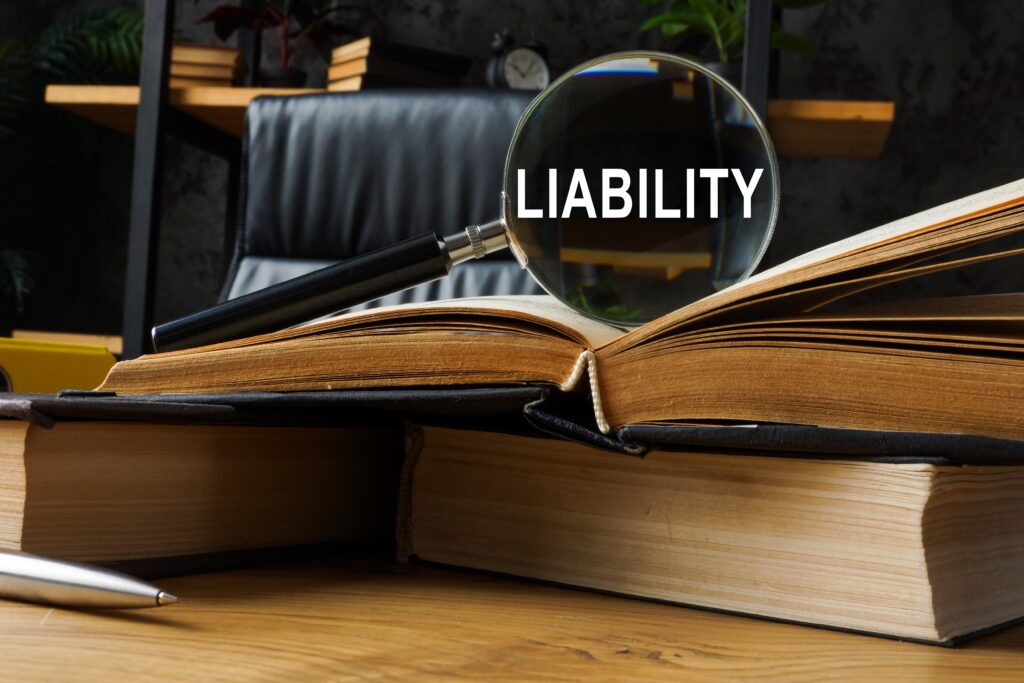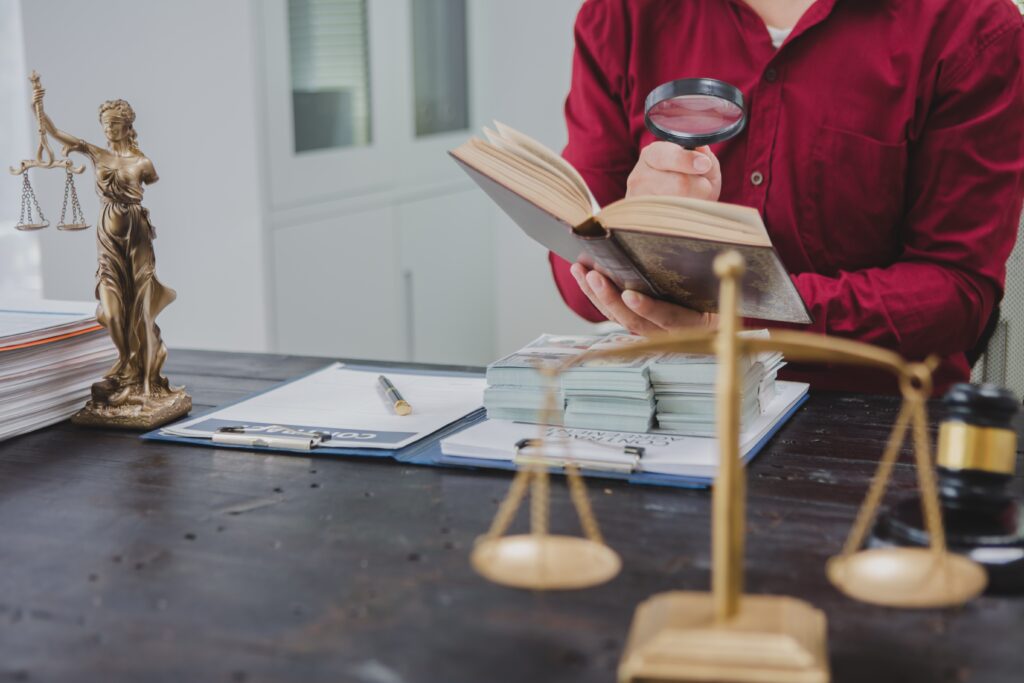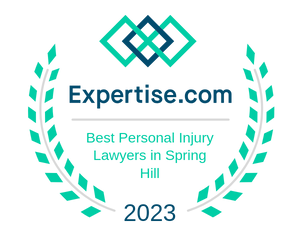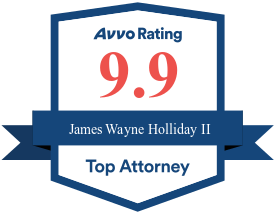When a property owner's carelessness causes your injury in a slip and fall, Florida law gives you the right to hold them accountable. This pathway is built to help you obtain the resources you need to cover medical bills, lost income, and the disruption to your life.
But having this right and successfully securing compensation are two different things. You must prove the property owner knew, or reasonably should have known, about the dangerous condition that caused your fall and did nothing to fix it or warn you about it. This requires a detailed investigation into the incident, from maintenance records to witness accounts.
While you focus on healing, the legal clock is ticking, and evidence disappears the longer time goes on. That’s where we come in. As Tampa slip and fall accidental lawyers, we take the legal burden off your shoulders and help you stand up to businesses and their insurance companies. If you have questions about your rights after a fall, we’re here to provide the clarity you need.
Call the Holliday Karatinos Law Firm for a straightforward, no-cost discussion about your case at (813) 868-1887.
Key Takeaways for Tampa Slip and Fall Claims
- Proof of negligence is non-negotiable. You can't get compensation just for falling on someone else's property; you have to prove the owner was negligent, which means they knew or should have known about a hazard and failed to act.
- Florida's deadlines are short. You now have only two years from the date of the fall to file a lawsuit, a recent change from the previous four-year deadline. Missing this window means losing your right to seek compensation.
- Your own actions can reduce your compensation. Florida law can reduce your payment if you are found partially at fault. If you are considered more than 50% responsible, you are barred from receiving any compensation at all.
Why Work With Us After a Slip and Fall in Tampa?
At Holliday Karatinos Law Firm, we’ve built our reputation by standing up for injured people across Florida—especially when they’re being ignored, doubted, or dismissed.
Our team brings more than five decades of combined experience handling personal injury claims, including some of the toughest premises liability cases. We’ve helped people recover compensation after falls in grocery stores, office buildings, apartment complexes, theme parks, and more. We know the patterns, the pressure tactics, and the legal roadblocks property owners may try to use and we know how to get past them.
You’re More Than a Case File to Us
When you call, you speak directly with an attorney who listens to your story, explains your options clearly, and gives you real answers. That personal approach doesn’t stop after the first call. We stay in contact throughout the process so you always know what’s happening and what to expect.
We Know What It Takes to Prove Negligence
In a slip and fall case, objective proof is everything. We know how to dig into maintenance records, uncover surveillance footage, question witnesses, and work with experts to prove that what happened to you was preventable.
We also understand how Florida’s comparative fault rules work in practice. We anticipate the defenses the insurance company will raise and prepare your case accordingly, so we can push back before they shift blame onto you unfairly.
We Prepare Every Case Like It’s Going to Trial
Many cases settle out of court, but we don’t assume that will happen. From the start, we build your case as if we’ll need to present it to a jury. That preparation sends a clear message to the insurance company: we’re not here to take shortcuts or low offers. We’re here to get what you may be owed under the law.
How Much Is My Tampa Slip and Fall Case Worth?
There is no simple calculator for a slip and fall claim. The value depends on the severity of your injuries, the clarity of the evidence, and the total effect on your life. Our goal is to pursue the maximum compensation available by thoroughly documenting all your damages.
Economic Damages
These are the measurable financial losses you’ve incurred.
- Medical Bills: Every cost, from the ambulance and hospital stay to future surgeries and physical therapy.
- Lost Wages: The income you have lost because you are unable to work.
- Loss of Earning Capacity: If your injuries permanently change your ability to earn the same income as before.
Non-Economic Damages
These damages address the personal, non-financial losses.
- Pain and Suffering: Compensation for the physical pain and emotional distress caused by the injury.
- Loss of Enjoyment of Life: How the injury has limited your ability to engage in hobbies and daily routines.
How Florida's Comparative Fault Rule Can Affect Your Compensation
Florida uses a "modified comparative negligence" system. This means that if you are found partially at fault for the accident, your compensation is reduced by your percentage of fault.
If you are found to be more than 50% at fault, you cannot recover any compensation at all. Insurance companies understand this rule and conduct thorough investigations, looking for any evidence to argue you were at fault. Our role is to keep them accountable and ensure no amount of blame is unjustly put on you.
Proving Negligence: The Foundation of Your Slip and Fall Claim
Just because you fell on someone else's property doesn't automatically mean you have a valid claim. You must prove the property owner was negligent. Under Florida's premises liability laws, this requires showing four specific things:
- 1. Duty of Care: The property owner had a legal responsibility to keep the property reasonably safe. The level of this duty changes based on why you were on the property.
- 2. Breach of Duty: The owner failed to meet that responsibility. This might mean they didn't clean a spill, repair a broken handrail, or warn people about a known danger.
- 3. Causation: The owner's failure was a direct cause of your fall and the injuries you sustained.
- 4. Damages: You experienced actual harm, including medical bills, lost wages, and physical pain.
To win a claim for a fall on a spilled substance in a business, Florida Statute § 768.0755 requires you to prove the business had "actual or constructive knowledge" of the hazard and didn't take action. We build your case piece by piece to show that the property owner's carelessness led to your injuries.
Does It Matter Why You Were on the Property?
Yes. Florida law classifies visitors into three categories, and the property owner’s responsibility—their "duty of care"—changes for each one.
- Invitees: This group receives the highest level of protection. An invitee is someone on the property for the owner’s benefit, like a customer in a store or a guest at a hotel. The owner must maintain the property in a reasonably safe condition, repair any known dangers, and warn of hazards they should know about.
- Licensees: A licensee is on the property for their own purposes but with the owner's consent, such as a social guest at a friend’s house. The owner’s duty is slightly lower; they must warn of known dangers that aren't obvious but aren't required to inspect for unknown hazards.
- Trespassers: A trespasser enters a property without permission. Generally, a property owner only has a duty to avoid intentionally harming a trespasser.
Where Do Slip and Fall Accidents Happen in Tampa?
Slip and fall incidents can occur almost anywhere, but they appear more frequently in places with high foot traffic or where conditions change quickly. In the Tampa Bay area, we see accidents happen at:
- Grocery and Retail Stores: Aisle spills, freshly mopped floors without signs, and fallen merchandise are frequent culprits.
- Restaurants and Bars: Greasy or wet floors, dim lighting, and cluttered pathways create dangerous environments.
- Parking Lots and Sidewalks: Potholes, cracked pavement, and uneven surfaces become tripping hazards, especially after a Florida downpour.
- Apartment Complexes and Office Buildings: Poorly maintained stairs, dim hallways, and frayed carpeting contribute to many falls.
- Theme Parks and Arenas: Large crowds and constant spills make these venues common sites for accidents.
Owners of these properties have a legal duty to inspect their premises regularly and fix any hazards to keep visitors safe.
What Are the Most Common Injuries in a Slip and Fall?
A fall can rewrite every aspect of life, causing injuries that range from irritating to disabling. Some of the most common injuries include:
- Broken Bones: Hip, wrist, and ankle fractures are particularly frequent.
- Traumatic Brain Injuries (TBIs): A fall that causes your head to strike the ground can result in a concussion or a more severe TBI.
- Spinal Cord Injuries: A hard fall can damage the spinal cord, causing herniated discs or more serious conditions with long-term complications.
- Soft Tissue Injuries: Sprains and tears to muscles and ligaments can result in lasting pain and mobility problems.
- Cuts and Bruises: Deep lacerations might lead to infections and permanent scarring.
The full extent of an injury is not always obvious right away. Pain sometimes flares up days or even weeks later. Sticking to your doctor's treatment plan is one of the most important things you should do for both your health and your case.
What to Do at Home to Protect Your Claim
While we handle the legal work, here is how you can help:
- Follow Your Treatment Plan: Go to all your medical appointments. This creates an official record of your injuries and demonstrates that you're taking your recovery seriously.
- Keep a Pain Journal: Daily notes on your pain levels and how the injuries affect your life can become powerful documentation for your non-economic damages.
- Preserve Evidence: Store the shoes and clothing you were wearing during the fall in a secure place. They may be used as evidence.
- Stay Off Social Media: Do not post about the accident, your recovery, or your activities. Insurance adjusters search social media for any information to argue your injuries are not as severe as you claim.
- Do Not Give a Recorded Statement: You are not obligated to provide a recorded statement to the property owner's insurer. Let us speak for you. Direct all their calls to our office.
Frequently Asked Questions About Tampa Slip and Fall Claims
How long do I have to file a slip and fall lawsuit in Florida?
For most slip and fall accidents in Florida, you have two years from the date of the incident to file a lawsuit. This deadline is called the statute of limitations, and it is absolute. If you miss it, you lose your right to pursue compensation.
What if the property owner says they didn't know about the hazard?
An owner does not need to have actual knowledge of a danger to be liable. If the hazard was there long enough that they should have known about it with reasonable care, they can be held responsible. This legal concept is called "constructive knowledge."
What if the dangerous condition was obvious? Should I have noticed it?
The defense might argue the hazard was "open and obvious" and you should have avoided it. This doesn't automatically disqualify your claim, especially if the owner had reason to think you might be distracted, like in a retail store designed to draw your attention to shelves. It may, however, be used to argue you were comparatively negligent.
Can I still file a claim if I was trespassing?
Generally, property owners in Florida owe no duty to protect trespassers from injury, except to refrain from willful or wanton harm. However, this rule has exceptions, particularly when children are involved and an "attractive nuisance" (like a swimming pool) lures them onto the property.
What if I fell at a friend's house in Tampa?
Filing a claim against a friend or relative feels awkward, but it helps to remember that the claim is made against their homeowner's insurance policy, not their personal assets. The insurance is there for exactly these kinds of situations.
Let’s Hold Them Accountable
Florida law gives you the right to seek compensation when a property owner’s carelessness causes your injury. But enforcing that right takes more than a form or a phone call. It takes evidence. Strategy. And someone in your corner who knows how to make your case heard.
That’s what we’re here for. We’ll walk you through your options, handle the legal legwork, and keep you informed every step of the way so you don’t have to go through this alone or guess at your next move.
If you’re ready to get clarity about your situation, call us for a no-cost, no-obligation conversation. Our team at Holliday Karatinos Law Firm is here to help. You can reach us directly at (813) 868-1887.










